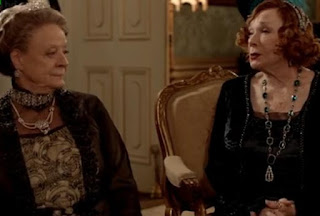My dear people,
By now, you have likely heard that I will be leaving St. Clement’s at the end of April. There are several factors that have led to this difficult decision, but principal among them is the strain of a long-term separation from my partner, Mike. The rector and I initially committed to my staying a year, at which point we would evaluate whether I might wish to continue as curate for successive years. In the last several months, however, Mike has received a series of promotions that has made it impossible for him to relocate, and so Fr. Reid and I agreed that it made sense to begin to plan for my departure. The timing of this transition has been arranged, so that the parish will be fully staffed during the busy season of Lent and the demanding liturgical schedule of Holy Week and Easter.
The second major reason for my departure is my growing confidence in my ability to lead a parish of my own as rector. It had always been my intention at the completion of my curacy to return to the Diocese of Chicago, where I have strong personal and professional ties. I am very fortunate that a number of very good parishes are coming open now, and returning to Chicago will make it easier for me to explore these vacant positions. I will take with me the learning and experience I have acquired at St. Clement’s, which I will undoubtedly draw upon heavily as I work to be a good rector. I take pride in the fact that I have received here something priests rarely get these days: intensive training in priestcraft. I have absolutely loved the time I have spent sharing in Catholic liturgy, traditions, and devotions; collaborating with one of the finest choirs in the country; and practicing a deep and disciplined spiritual life organized around the Daily Office and the celebration of the Holy Sacrifice of the Mass.
It has been a privilege, moreover, to serve as your curate during an important transitional period in St. Clement’s history. Although I have learned much from you, I hope you have learned from me, as well, and that I have contributed something important and lasting to your life as a parish. I have appreciated the many compliments you have paid me on my preaching, or my chanting, or my work to grow the mission of the parish, but I have most valued the ways that you have stretched and challenged me, demonstrated patience with my stumblings, and offered constructive criticism. We have accomplished much together, and I am gratified by the start we have made here in the last year: Ashes-to-Go, the neighborhood food collection, the vestment exhibition, Outfest, and the Bible studies here and at Atria Senior Living. I am especially thankful for your open-mindedness toward my attempts to spread the Gospel in more contemporary formats, such as my weekly blog and YouTube videos, which I hope will inspire you to share your own stories of faith. The past year has been full of so many milestones for me—the Exsultet, my ordination to the priesthood and first mass, hearing my first confession—and none of them would have been as special as they were without you. I am grateful to have the luxury of a leisurely departure, so that we can ensure the smooth handoff of ministries and responsibilities that I have led, but more importantly, so that we have adequate time to say goodbye. I intend to make use of these next three months to thank you for being in relationship with me, for the many instances of your hospitality, kindness, and friendship. Thank you from the bottom of my heart for the wonderful start you have given to my life as a priest.
God bless you all.








